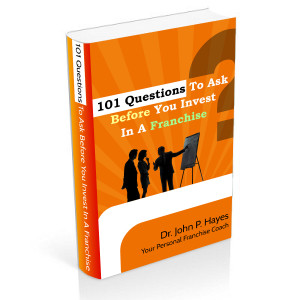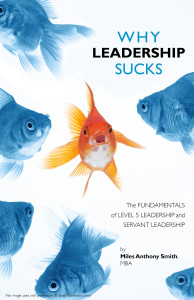Julie Ann Wood
Aug 28, 2015 | 1st pages, Business, Non Fiction

Dear Reader:
Think back to when you were a child. Remember the time when you decided to raise a little extra spending money by opening up your own lemonade stand? Maybe your mom or dad helped raise funds for you by loaning you the grocery store money to buy the lemons, sugar, and cups. Or maybe you just syphoned off the cartons of lemonade your parents brought home from the store.
Regardless of how you made it happen, this was probably the beginning of your entrepreneurial career. A lemonade stand could be anything. It could be selling baseball cards, video games, mowing the neighbor’s lawn, babysitting, or, as you grow, beginning a new business or company.
But the important thing to note is that a lemonade stand is grounded in the desire to build youth entrepreneurship at a young age to better prepare our children for exciting opportunities in life. The sooner we educate and train the new generation in fundamental business practices, the better positioned they will be to succeed in the hyper-competitive business world.
Just as technology is used as a tool to accomplish more in less time, youth entrepreneurship can be used as the tool to develop youth in less time. This book focuses on a proven youth entrepreneurship curriculum to help kids utilize their unique talents and skills to start a business, creating by-products of increased confidence and self-esteem.
Through the experiential learning activities included in the curriculum, they will learn basic business terms, learn how a business runs, develop their own business idea and participate in a large team lemonade stand competition to raise funds for a scholarship fund. These activities are so fun and engaging that kids don’t even realize that they are learning until they attend the awards ceremony and see the results they’ve achieved.
More Than a Lemonade Stand™ is a complete step-by-step guide to planning, implementing and running a successful youth entrepreneur camp. This book provides a thorough explanation of the activities that I complete each year for the youth entrepreneur camp that I direct at the University of Wisconsin – Madison Small Business Development Center.
This guide is for anyone from seasoned trainers/teachers to parents, science centers, museums, youth centers, small business development centers, community education programs, or other organizations that would like to implement a youth entrepreneur camp or incorporate youth entrepreneur curriculum into their current programs.
The book is set up as a checklist so that you can use it as a resource year after year as you start planning and implementing an activity or program. It can also be used to train your staff and as a communication tool so that everyone understands the what, why, and how to.
Even though More Than a Lemonade Stand™ is set up in a camp format, the book is designed so that you can pull the activities out and use them in any program that focuses on youth entrepreneurship. The activities are geared for kids in grades 5-8, but with minor modification I have used them for as young as 3rd and 4th grade and as high as 11th grade.
The activities are synergistic in that they build and reinforce each other to help increase the kids’ entrepreneurial skills, confidence, and self-image. This is done by focusing on developing the kids’ unique passions and interests, with the goal of turning them into viable business ideas that they are equipped to run when they leave the camp…
Andrew Stotz
Jul 30, 2015 | 1st pages, Business, Non Fiction

1. CREATE A WRITTEN PLAN AND FOLLOW IT
What are the advantages of having a written plan?
1. Writing your plan down forces you to make decisions that you might never have thought about when your plan was just in your head. Your “mental plan” is probably far less complete than you think.
2. A written plan helps you conquer the tricks that your mind and the stock market play on you. Once you commit your mental plan to paper, you will have a solid road map to follow in times of doubt, stress, and volatility, which are the major contributors to the state of mind that causes the most financial damage: panic.
3. Referencing a written plan helps you to visualize your financial goals and remind yourself of what you want. It keeps you focused on how much to save in order to achieve financial security.
4. A written plan helps you overcome “overconfidence bias”, the feeling that not only can you do it, not only can you handle it, but that you are better than average. Many research papers1 have shown that all of us have the behavioral bias of overconfidence.
Dr. John P. Hayes
Jun 19, 2015 | 1st pages, Business

How To Use This List
After buying a house, buying a franchise may be your largest investment ever, and it’s not something that should be done without a great deal of questioning. Even then, most people shouldn’t do it at all.
For more than 30 years I’ve told people that franchising may be the safest way to go into business, but it’s not for everyone, and it may not be for you. Sadly, people buy franchises for many of the wrong reasons.
They buy because they want to replace a job, or because someone (perhaps a parent, spouse or best friend) told them they’d make a great franchisee, or because a sales person twisted their arm (yes, of course that still happens).
Is franchising for you?
The worst-case scenario: People who buy franchises without doing the required homework, which, when you think about it, essentially boils down to asking a lot of questions. If you spend several weeks asking questions about franchising, and especially about a specific franchise that you want to buy, you are likely to figure out if it’s a good investment for you.
Of course, if you don’t know what to ask – and more importantly, who to ask – you’re at a disadvantage, and you may not do your homework. Or you might do your franchise homework the way I used to do my high school homework – “not very well,” according to most of my teachers. You can get away with “not very well” in high school, but you probably won’t when you invest six figures or more in the wrong business opportunity.
At a minimum, when you buy a franchise you must ask questions of the franchisor, franchisees, professional advisors (including a franchise attorney and a franchise-wise accountant), and others. And now, knowing what to ask isn’t an issue because I’m about to give you the key questions to ask.
Knowing who to ask isn’t a problem, either, because I’m about to tell you who to ask. And while my list cannot possibly include every question you should ask, it at least gives you a good start, and sometimes that’s the momentum you need to do your homework “better than good,” as the late Zig Ziglar used to say.
Real experiences led to these questions
I first created this list of questions many years ago to help the franchise prospects that I coach. Through the years I’ve refined the list by adding and combining questions. Most of these questions are based on my experiences teaching people about franchising . . . but more importantly, many of the questions are based on my personal experiences as a franchisee (of several different concepts), a franchisor (leading more than 265 franchisees), and an advisor to dozens of franchise companies, public and private, domestic and international.
Track the answers
My recommendation is that you ask most of the questions on this list and other questions that will arise during your franchise exploration. I also recommend that you keep track of the answers to all of the questions you ask. It’s best to create a spreadsheet that includes the questions you asked, who you asked, and the respective answers.
That way, after you’ve asked questions of a dozen or perhaps several dozen people, your spreadsheet results will help you in your final analysis of franchising as well as specific franchise concepts. When you finally reach the end of your exploration and ask the definitive question: “Do I or do I not buy this franchise?” your answer will shout out at you from the spreadsheet.
Answers to many of the questions, especially those that inquire about franchising in general, can be found in books, magazines, at libraries and from a variety of other sources. I’ve also included answers in my e-book, Buy “Hot” Franchises Without Getting Burned, A Checklist for Your Franchising Success
Questions that are specifically about a franchise company must be answered by the franchisor of that company, its franchisees, and related sources. You may also learn about specific companies, or specific details related to companies, through your professional advisors, including lawyers, accountants, leasing agents, bankers, and franchise advisors.
Ask the me questions
Some of the most important answers can only come from you. Buying a franchise is a personal experience, and yet most people don’t seem to treat it that way. People like to buy what’s “hot” even though that’s the fastest way to get burned. Or people will buy a franchise because they know someone who bought the same franchise and that someone is making a lot of money.
What people don’t understand is that even if franchising works for two people, those two people will not necessarily succeed equally in the same franchise concept. Why? Because people are different. The franchise may not be different, but if the requirements of the franchise do not meet the unique skills and preferences of a franchisee, failure is likely to be the result.
Even many franchisors scratch their heads and say, “I don’t understand why he failed.” He, whoever he is, failed because he was not a good fit for the business. Had he understood the skill requirements of the franchise business, and the expectations of the franchisor, and then objectively assessed his expectations and abilities, he would likely have known to buy another franchise, or maybe no franchise at all.
Unfortunately, because people get in a rush to buy a franchise – it’s a very emotional experience – they do not ask the all-important me questions. And, sad to say, many franchisors do not require their prospects to ask those questions.
Assess your compatibility with franchising
It’s critically important to know if you’re a fit for franchising, and not just franchising, but a specific franchise business. You may be great in a fast food business but horrible in a service business – much depends on your skills and expectations. You can learn more about your compatibility with franchising in general, and with specific franchises, by completing the ConnectMe Personal Profile.
Use my affiliate link at www.navigatorsurvey.com/survey/HAYESCONNECTME.html and the assessment is free. ConnectMe will send you information to help you understand the type of franchise that makes sense for you based on your personality, skills and expectations. Some franchisors will insist that you complete a personality profile prior to selling you a franchise – unfortunately this isn’t a universal requirement.
Unless you’ve got a lot of money, and/or you’re a savvy business operator, you should get answers to the majority of the questions listed below. Furthermore, you should make certain you understand and agree with the answers to the questions on this list before you invest money in a franchise.
Ready to begin your franchise exploration? Here are key questions to ask, along with who to ask!
Nicole Comer
Jun 15, 2015 | 1st pages, Business, Humour

INTRODUCTION
Thank you for taking the time to read this book which is a collection of tips, stories, perspectives, cautionary tales and my 2 cents about acting professionally.
My goal was to create a realistic, candid and no-nonsense guide for actors that would serve as a handy tool whether you're just starting out or a professional looking for some fresh ideas.
This is not about acting technique. No Uta Hagen, Meisner, Stanislavski and the like will be discussed. This is about the business.
Those who are passionate and sincerely dedicated to acting as a career will understand and appreciate the tips and stories.
Those that are simply seeking fame and a get-rich-quick look into acting will find my candor incredibly inconvenient.
Some information may seem obvious or redundant to those savvy to “the business”, however, I believe my perspective as a working actor, acting coach, writer, producer and entrepreneur (a future book will cover that) will offer a unique and helpful perspective.
At the same time, I’m hopeful and confident that everyone in pursuit of an acting career or any career in the arts will find golden information here that speaks to them and offers some insight, humor and a bit of security in such an insecure industry.
We must never forget that this is Show Business.
My style is very matter-of-fact with a flair for the sarcastic. Why sugarcoat things? Are there exceptions to each rule? Of course, but why waste time with isolated exceptions?
Set aside all the business realities and I must express that I adore acting. I love it. It’s a soul mate for me. I will do it my entire life. There are a lot of things I can do, do well and have enjoyed doing, but what is always at the top of the list? Acting.
There are a lot of helpful opinions, stories and perspectives out there.
These are mine.
Frank McCarthy
May 21, 2015 | 1st pages, Business

I am an entrepreneur. You are an entrepreneur too. Accountants, naysayers, lazybones, professionals, oxygen-stealers, experts, consultants – we are surrounded by them our whole lives. They are our enemies. They are our obstacles. Do you feel trapped? Do you wonder what is going on around you?
Do you feel out of place? You need to believe you can do better. You must understand your life is not over yet. Please realise you are not alone. Are you ready now? Has life convinced you it is finally time to take matters into your own hands? Are you surrounded by the lazy, the deluded and the restricted?
Do you want to think for yourself? Do you want to use your own mind, to have your own thoughts? You need to do more than simply decide. You have to have the talk with yourself. What is the talk? The talk is self-talk. It is when you have a question and answer session with yourself. Here is a simple example:
“Will I have lunch now, or will I wait? Yeah, I will wait”. Who has just answered you? There must be two to talk: yourself the speaker and yourself the listener. “Do I want to be an entrepreneur, or don’t I?”, this is the question you must ask yourself. If you can make up your own mind, think for yourself and maybe allow yourself to make a mistake or two, then you can be an entrepreneur in whatever you do.
Thinking like an entrepreneur will help you in every aspect of your life. This book aims to help you to dispel the bad thinking habits we have all picked up along the way. I wrote this book to tell you that being an entrepreneur is a state of mind. You do not have to start a business, you do not have to open a company;
being an entrepreneur is more than that. Those things are merely the result of the entrepreneur’s way of thinking. Being an entrepreneur means you greet every day confident that you are making your own decisions. You are an entrepreneur at home and at work.
It’s Never About the Money demonstrates that, with a little bit of entrepreneurial thought, along with some hard work, you can be a success in whatever you do. This is how it was, this is how it is and this is how it always will be. In this book, I tell you what happened in my life, what I have done and what I have learnt. Throughout, I give you simple and accessible real-life lessons to help you to understand why and how.
Miles Anthony Smith
May 19, 2015 | 1st pages, Business, Self Help

If we go into management to earn more, have more power/prestige, and work less, we are either naïve or ignorant. (And let’s admit right now that those are precisely the reasons most of us go into management.)
Wise leaders accept that some decisions will be unpopular. If you can’t handle others’ disapproval, then leadership isn’t for you. Trying to be everyone’s friend is a futile and selfish effort. Most of us want to be liked; as we progress through school, we do things to get others to accept us (with varying levels of success).
We try to wear the cool clothes, have a cool car, or take the cool classes. We then carry those bad habits into the workplace; we do things to attain the approval of others, allowing true accountability to wither. Some of us want so desperately to be accepted that we will sacrifice the good of the rest of the organization for our own selfish emotional gain.
While it might help in the short-term, the pursuit of approval is a guarantee of long-term failure. Those who don’t throw their leadership opportunities away in pursuit of approval will be teased at best; at worst, they will be ridiculed, mocked, and defamed. So prepare to be hated, but remember that the haters are the ones who don’t matter.
The ones who do matter will sincerely appreciate your leadership and implicitly trust your guidance, since you have proven your constancy and trustworthiness.
Staying vulnerable is a risk we have to take if we want to experience connection.
-BRENÉ BROWN
In life, but especially in leadership positions, we all face fears. We fear not being accepted, feelings of inadequacy, shame, rejection, discomfort, and the list goes on. My response (and I am speaking to myself more loudly than others) is, “We’re all afraid . . . so what!”
We must choose to get over our fears and not allow them to hinder our growth and development as leaders. So what if we don’t have it all together. So what if we didn’t go to the right school; so what if we didn’t have a good mentor.
We all have something to offer, and we must choose to focus on what we do have to offer, not what we don’t. And remember the dirty little secret is that those who are acting like they have it all together really don’t.
One thing that fuels fears about the future is past betrayals, and betrayal is one of the ultimate tests of leadership. Are we willing to walk in forgiveness with those who betray or seem to have betrayed us?
Are we going to wall ourselves off from future close relationships with others, or are we going to allow intimate relationships with others that ultimately might mean another betrayal?
I do recommend that we are wise in this, not allowing obviously dysfunctional people close to us, but we can’t use that as an excuse to not be vulnerable. I admit that forgiving betrayal is difficult for me, but I must choose to let those circumstances go, since unforgiveness only hurts me, not the other person.
I would rather choose to remain vulnerable and be taken advantage of than be so skeptical of others that I have no intimite friendships.
Leaders also get to be uncomfortable; it’s part of the job description. At one point, I resigned from a position with a company and had the choice to leave without talking to anyone or come back the next day and give my leaders some closure. As painful and emotional as I knew it would be, I chose the latter and am glad I did.
As leaders, we don’t have the luxury of shirking painful responsibilities even though we would like to. Leadership is not necessarily safe but can be perilous to our career; it involves much more risk than just being a team member. Our actions as leaders are held to a much higher standard, and criticism of our leadership decisions is much more out in the open for everyone to see.
Simply being a team member allows more anonymity for the quality of work and decisions made. If things don’t work out in leadership, that person usually doesn’t have the opportunity to move to another position within the company like a non-manager does.








